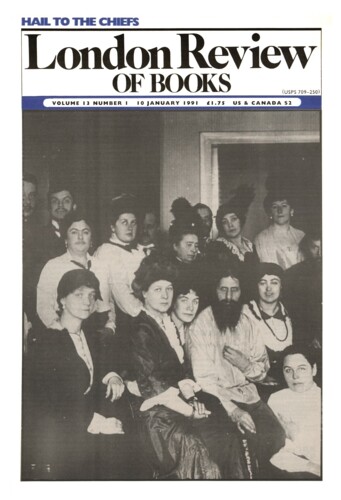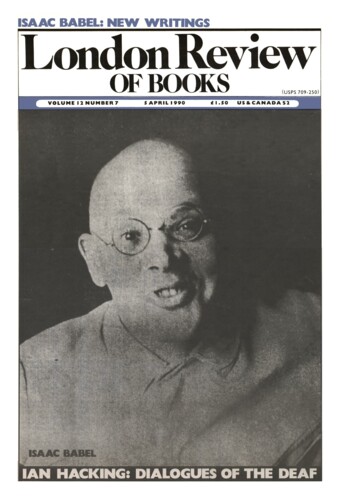The National Curriculum
Ken Jones, 10 January 1991
Two years after the ‘Reform Act’ that was meant to end it, the English education crisis is unmistakably back. The signs of its return are many and familiar: rows over ‘standards’; anxious comparisons with European rivals; despairing accounts of the material state of schools; and fevered plans for a yet-further extension of the market system. All this after a decade of spectacular Conservative victories, in which those held responsible for educational decline were dealt blow after blow. Teacher trade-unionism was defeated and put in legal shackles. ‘Radical’ local authorities were pilloried and, in the case of the largest, abolished. The orthodoxies of an equal-opportunity-minded educational establishment were replaced at the heart of policy by the programmes of the Conservative Right. All to no avail: the wiping-out of the progressive enemy has only served to highlight the abiding problems of English education.


